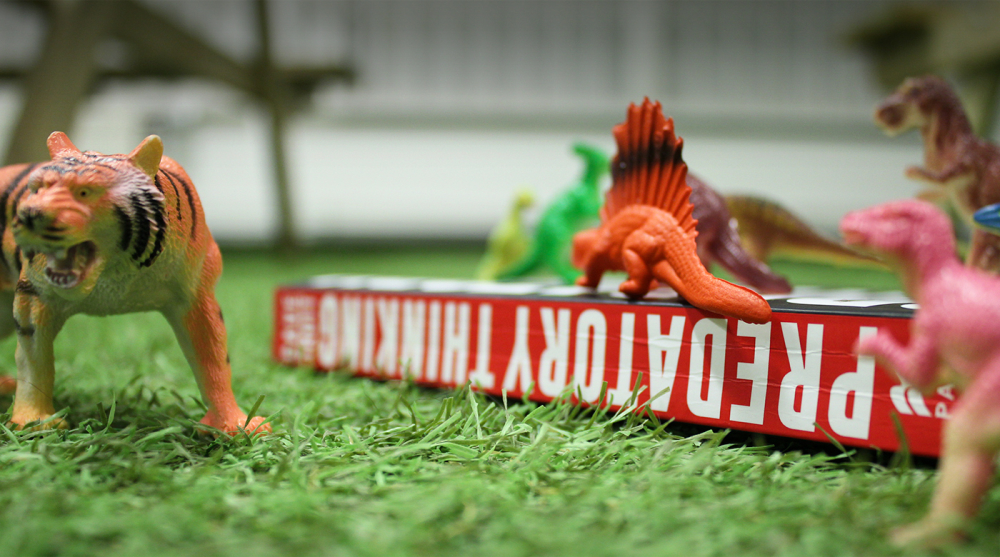Outwitters and losers
18 Jul 2017

Predatory Thinking is the philosophy that has underpinned Dave Trott’s distinguished career as a copywriter, creative director, and founder of some of London’s most high-profile advertising agencies.
The book is a series of stories rather than a list of instantly-forgettable rules or dry-as-dust formulas. (As one of Dave’s advertising heroes, Bill Bernbach, said, “Principles endure, formulas don’t.”)
But what is Predatory Thinking? How can we apply it to benefit our clients? To better ourselves as individuals and as an agency?
Here are our top-five takeaways.
1. A creative mind is an enquiring mind
Question: What makes us creative? Answer: An enquiring mind. The desire to always want to know more. To want to know why, how, when, where, who. And that goes for everyone in the agency. Why does it have to be that way? What if we…? So stay curious. Hunt for inspiration in unexpected places. Never lose that sense of discovery.
2. Find the point-of-difference among your competitive set
In Dave’s words, “You don't have to be better, you have to be different." As an example, Dave Trott pulls five coins from his pocket and holds them up, one after the other. "Which one do you remember?" he asks, knowing the answer will be the 50p coin among the four £1 pieces. "They're all worth double what that's worth, but that's the one that's different, it's not rocket science is it?"
3. “We see things not as they are, but as we are.” Anaïs Nin
We have to make sure that we are always – always – looking at things through a consumer’s lens, not our agency’s lens or the client’s lens. There’s a great example in the book. When he’s in charge of a pitch, the first thing he asks of the pitch team is to write down everything they know about the product, the brand and the market. Before they start researching. Because, as Dave writes, “it’s the only time we’re actually in the same place as the consumer. As soon we start to find things out, we move away from the consumer’s state of knowledge.”
Remember: clients don’t need someone who knows everything they know. They need someone who knows what they don’t know.
4. Strategy is what. Tactics is how.
Don’t get the two confused. Social media is not a strategy. It can, however, be a very powerful tactic. Strategy is the “what” part of the equation and helps you answer the question, “What are we trying to achieve?” What’s the KPI here? And because every business has finite resources and operates in a highly competitive, ever-changing landscape, it can’t do everything. Hence, tactics. The “How”. Tactics help businesses answer the question, “How are we going to achieve our goal/KPI?”
5. Marketing is a zero-sum game
Sounds pretty brutal, right? But. If you want something you have to take it from someone else. If you want more sales, if you want to grow the market, if you want to increase brand share, it has to come from somewhere else. Someone else. We need to be clear on this and not afraid to ask the question – of ourselves and our clients. At its simplest: in order to win, someone else has to lose.
To sum up, “Creativity must be about questioning the way things are, and doing them differently. Find a creative way to out-think other people.” Thanks, Dave. Let’s see what the next Book Club serves up.

Please login to comment.
Comments